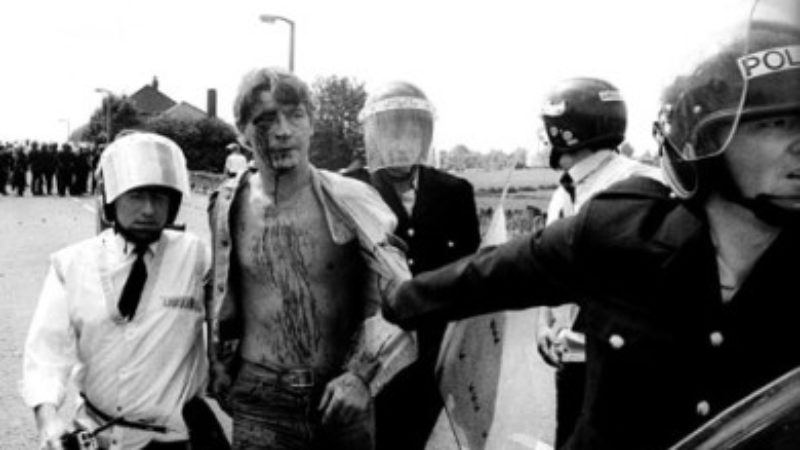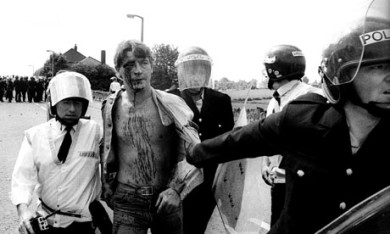

The decision by the home secretary yesterday not just to torpedo the idea of a public inquiry into Orgreave but to rule out any kind of evidence-gathering independent panel whatsoever feels like a shameful stitch-up.
Campaigners, many of whom have dedicated years of their lives to the search for truth, were given barely any notice before Amber Rudd rushed out her decision at the last minute. It meant that MPs hadn’t even seen the letter explaining her decision before she came to the House.
That was clearly deliberate – let’s just be clear about the weight of evidence and opinion which the home secretary has pushed back against.
The Independent Police Complaints Commission found in a review of the Orgreave prosecution court papers that there was evidence of excessive violence by police officers, a false narrative from police exaggerating violence by miners, perjury by officers giving evidence to prosecute the arrested men, and an apparent cover-up of that perjury by senior officers.
And this was a cross-party call from campaigners of all parties and none, troubled at how and whether police forces from across the country, ostensibly there to serve their communities, were used against them.
It was backed by no less than the Chief Constable of South Yorkshire Police; Margaret Thatcher’s employment minister at the time; the chief of staff to the prime minister, Theresa May; hundreds of MPs; and the Hillsborough families who recognised acutely the pattern of injustice. This was no narrow, partisan campaign.
Dave Jones, the interim chief constable of South Yorkshire put it well: “The Hillsborough Inquests have brought into sharp focus the need to confront the past. I would therefore welcome an independent assessment of Orgreave.” The current Chief Constable Stephen Watson concurred.
Indeed, media reports unmasked the previously redacted sections of the IPCC report from June 2015 into the events surrounding Orgreave. They revealed striking similarities between the personnel and alleged practices of South Yorkshire Police at Orgreave and at Hillsborough. Similarities which were chilling and which, in my view, rendered the need for truth utterly essential.
That’s why my colleague, Andy Burnham, was spot on when he said we cannot get the full truth about Hillsborough until we get the full truth about Orgreave.
Now the home secretary has shamefully slammed the door shut on the search for truth after leading campaigners up the garden path. Evidence which sits in police force archives across the country and in the archives of public authorities, including the government, will now stay locked away, gathering dust despite the significant information they may provide.
That is why Rudd’s decision to not even commit to an independent release and review of evidence amounts to a betrayal of justice. Significant questions about who ordered the brutal deployment of mounted police armed with truncheons on a legal gathering; who decided to charge arrested miners with riot; and why has the operational order for police deployment that day disappeared?
The truth is that for many communities in South Yorkshire the events and actions of police forces across the country during the miners strike has left a bitter legacy. This decision wilfully exacerbates that and leaves the open wound of Orgreave to fester. As a former special constable myself, I know the damage for policing by consent that this decision will cause.
One thing is for sure, however, miners and miners’ families have been through a great deal over the past few decades. This stitch-up will not stop our search for justice.
Louise Haigh is MP for Sheffield Heeley and shadow minister for digital economy.




More from LabourList
Antonia Romeo appointed to lead civil service as new Cabinet Secretary
‘If Labour is serious about upskilling Britain, it must mobilise local businesses’
Stella Tsantekidou column: ‘What are we to make of the Labour Together scandal?’